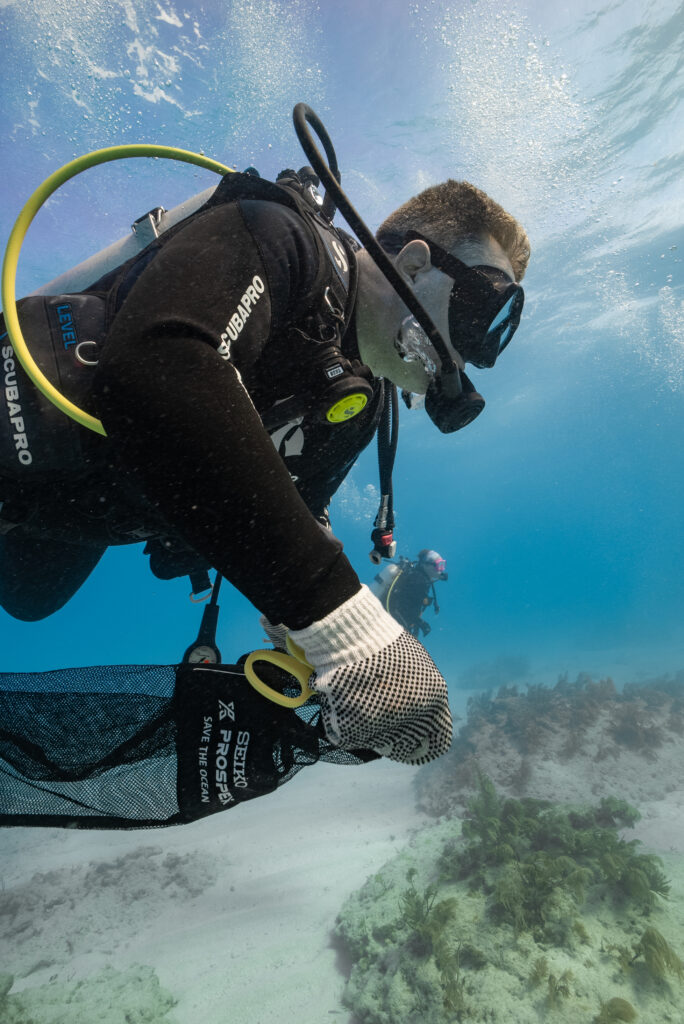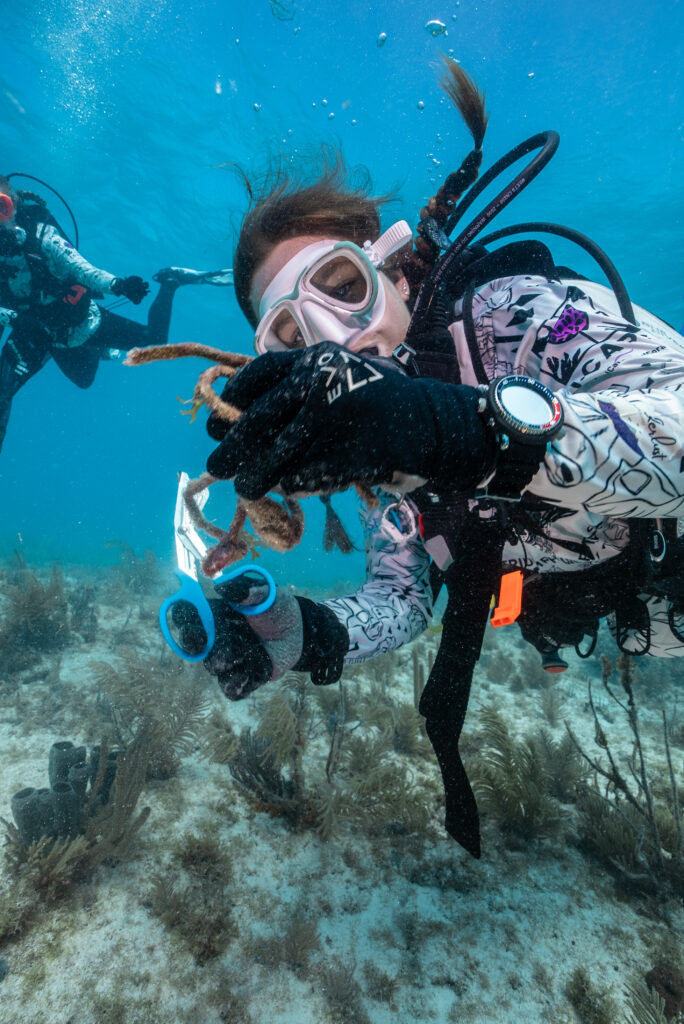In my May blog, I discussed how Ocean Torchbearer citizen scientists involved in the PADI AWARE Dive Against Debris® program are likely to be pivotal to the success of an international treaty addressing plastic pollution.
As you likely know, “citizen science” is when lay people voluntarily team with scientists in research projects. Citizen science has been around for more than 100 years, though the term itself seems to be much newer. As reported by Frontiers in Climate, citizen science is increasingly vital because public participation makes research possible that otherwise would not be due to cost and scale. A paper in the Marine Pollution Bulletin in March 2024 is a great example of what’s possible: South Pacific marine debris was analyzed to determine the distribution, type and density of regional debris – 20 tons of it! The research, findings and suggested actions based on them would have been impossible without the efforts of divers like you and me.
While PADI AWARE Dive Against Debris is one of the most visible and successful citizen science programs, there are hundreds such programs. In the US, for example, in 2023 more than 4700 volunteers provided more than 36,000 hours of support to NOAA (National Oceanic and Atmospheric Administration) scientists by collecting data on marine sanctuaries, marine mammals, debris, stormwater, lionfish and more.


Although successful surface-based citizen science had been around for quite awhile, when citizen science diving first originated, some researchers questioned whether recreational divers could provide scientifically useful data – a reasonable concern. Since then, the accuracy of citizen science diving has been studied, with the data gathered by trained volunteers found to be as good as that gathered by formally qualified scientists. Find one of these studies here.
That helping science study, restore and protect the oceans is enough reason to be a citizen science diver, but I’ll let you in on a secret – it’s a great reason to develop and use your dive skills because it gives your dives more adventure and purpose. It’s something you put your heart into. As physicist Stephen Hawking put it, “Science is not only a disciple of reason but, also, one of romance and passion.”
You can make every dive a Dive Against Debris® survey dive as a start, but that’s just the start. Almost anywhere you go, science can use your help: coral restoration, aquatic life surveys, archeological mapping, invasive species hunts, ghost net removal and more. Find some suggestions here, but a great place to start is to ask your local PADI Dive Center or Resort about the citizen science projects they’re involved with. If they’re a PADI Eco Center, they’ll be engaged in Adopt the Blue, and that’s an open door to lots of citizen science opportunities.
Whatever you choose to do, make citizen science a regular part of your diving – it not only makes a difference, it’s a great way to seek adventure and save the ocean.
Share This